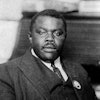We didn’t get a Sacheen Littlefeather moment, a spontaneous show-stopping bit at the Oscars where a statement is made that calls the Academy to task.
But we did get impromptu pizza runs and spontaneous selfie-taking.
The unscripted moments were more silly than not.
Certainly, not like the one where in 1973, Marlon Brando, the winner of the Best Actor award for “The Godfather,” gave up his time to Littlefeather, a Native American activist, who then used it to speak out against the treatment and portrayal of American Indians in the film industry.
In more than 40 years, Native Americans are still under-represented. And we still have Hollywood giving us films where Johnny Depp plays Tonto.
But I don’t want to downplay the surprising diversity Oscar actually displayed Sunday night.
This year, the Oscars honored some tremendously talented people of color—for a change.
There was nothing token about this gesture.
This year, an Asian American of Filipino descent, Robert Lopez, won for best original song, “Let it Go,” from “Frozen.” Lopez co-composed the song with his wife Kristin Anderson-Lopez, with whom he sang a clever rhyming acceptance. It was a nice way to celebrate a special win as Lopez at 38, becomes the youngest to complete what’s tantamount to entertainment’s quadruple crown. He’s now won an Emmy, Grammy, Oscar and Tony.
That would have been a nice diversity touch right there.
But we weren’t done for the night.
“Gravity” amassed most of the Oscars handed out. But its top award was to its visionary director, Alfonso Cuaron–born in Mexico City.
And then, of course, the big winner was “12 years a Slave,” honored as the year’s Best Picture. The story of Solomon Northup was adapted from his memoir by the African American writer John Ridley.
But the representative who made the most impact was the winner of Best Supporting Actress Award, Lupita Nyong’o, holder of dual Mexican/Kenyan citizenship, born in Mexico City, and a graduate of Yale Drama School.
When I saw her portrayal of Patsey, who was brutally beaten and raped in the film, you just knew it was a performance that would not be forgotten by the Academy.
Overall, it was the most riveting movie experience I’ve had in a long time.
It wasn’t “Roots.” It wasn’t “Gone With the Wind.” It was a no-holds-barred portrayal of slavery that needed to be told for once.
It only took 150 years or so, but finally it made it to the big-screen, and was rewarded on Oscar night.
While British director Steve McQueen mentioned the thousands who still live in slavery in his speech, the best speech given by a “12 years..” winner was Nyong’o.
“Thank you to the Academy for this incredible recognition. It doesn’t escape me for one moment that so much joy in my life is thanks to so much pain in someone else’s. And so I want to salute the spirit of Patsey for her guidance. And for Solomon, thank you for telling her story and your own,” Nyong’o said.
Thank you speeches rarely stand up to what a performer delivered in the movies, but Nyong’o came close as she held Oscar and came in for her close-up.
“When I look down at this golden statue,” said Nyong’o , “May it remind me and every little child that no matter where you’re from, your dreams are valid. Thank you.”
A perfect touch of inspiration for everyone who watched a slightly different Oscars this year ― one that had more than just a drop of diversity.
Emil Guillermo writes on issues of race for the Asian American Legal Defense and Education Fund (www.aaldef.org/blog) Like him at www.facebook.com/emilguillermo.media ; twitter@emilamok




















